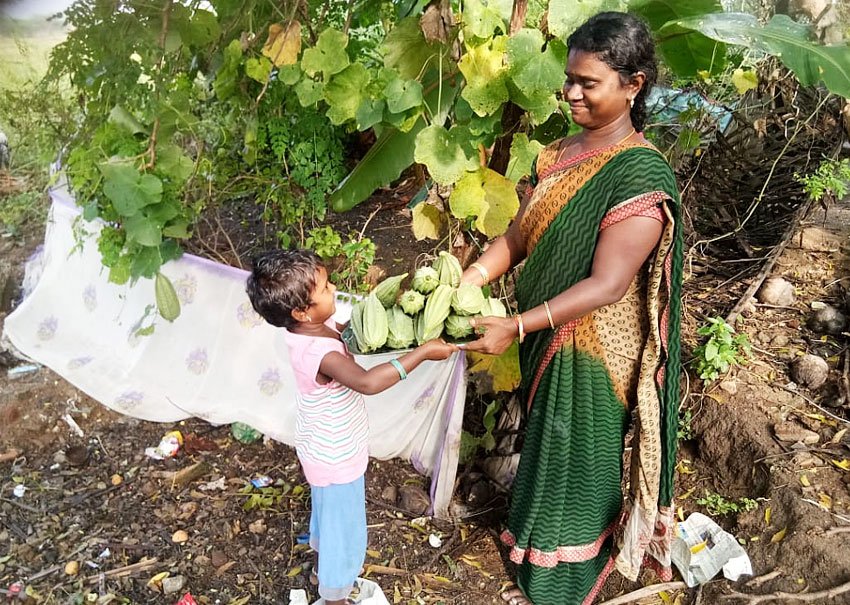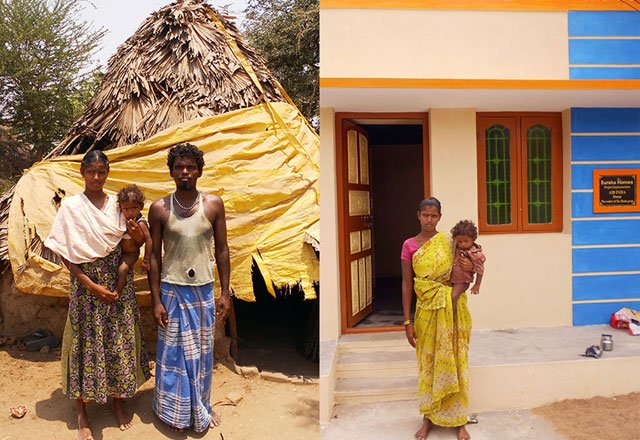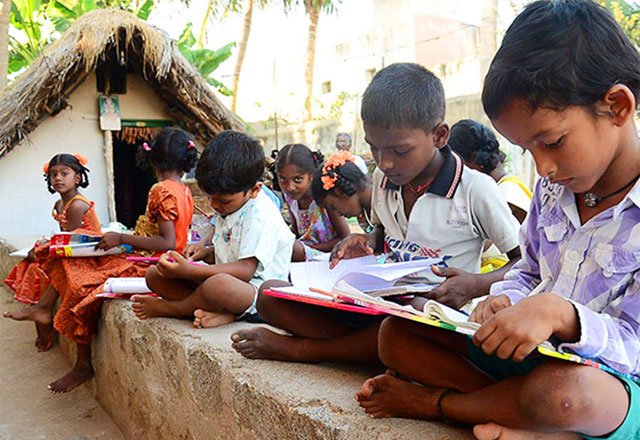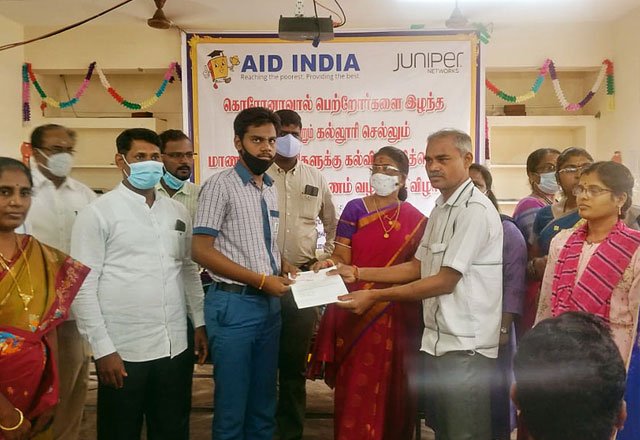
Kitchen Garden
A study by the International Food Policy Research Institute revealed that in rural India, close to 76% of the people cannot afford a nutritious diet. Although most rural Indians are farmers and make a living with agriculture as their main occupation, their wages are not enough to provide them with nutritious food.
The lack of adequate nutrition has led to several health problems and severe cases of malnutrition can be seen among all age groups. In an effort to help rural Indians gain adequate nutrition and live a healthy lifestyle, the Kitchen Garden Project was initiated by AID India.
So far, the Kitchen Garden Project has been implemented in 183 villages across 12 districts in Tamil Nadu.
The Struggle for Basic Nutrition
AID India recognized that the rural residents could not afford an adequate quantity of food and enough vegetables for nutrition even if they spent their entire income on food. There were two main problems that we saw in rural India:
- Lack of adequate income to afford nutritious food.
- Health problems and severe malnutrition due to bad food and unhealthy food intake.
The cost of vegetables and healthy ingredients set by the Government were too high for people to afford. As most of the rural Indians work as farmers or in agricultural fields, their minimum wages were inadequate to feed their entire family and to keep their farming business afloat.
A solution to these problems is the Kitchen Garden Project by AID India started in April 2021.
Healthy Living with the Kitchen Garden Project
The main aim behind the Kitchen Garden Project was to help rural Indians get adequate nutrition every day and find a means to increase their income to afford it. The kitchen Garden Project began by helping the people find space in their home yards to cultivate basic vegetables that could be used in their everyday diet.
AID India teams educated the people on various vegetables and their nutritious values. They taught the people about the techniques and methods to cultivate the plants that yield good, healthy vegetables.
These were some activities that AID India carried out to encourage the Kitchen Garden Project:
- ● Public gatherings were organized by a vast network of AID India volunteers and members with the help of local authoritative bodies and leaders.
- ● The people were educated on the benefits of the Kitchen Garden Project both health-wise and in means of increasing their income.
- ● 75 families were recognized as beneficiaries in each village out of 183 villages in tidal across 12 districts in Tamil Nadu. Other families in the villages were also encouraged to join the training programs and attend meetings about the Kitchen Garden Project.
- ● The families were briefed about the cultivation process beginning from preparing the plot, sowing the seed to reaping the harvest.
- ● The beneficiary families received a kit from AID India which contained a variety of vegetable seeds to be sowed in the selected space. Each kit contained 5 plant varieties, 4 vine varieties, and 1 spinach variety.
- ● The families began their Kitchen Gardens under constant supervision and help from AID India teams.
- ● Our teams and special trainers periodically visit the beneficiary families to help them with the preparation of organic fertilizers and insect repellants to help them grow healthy vegetables with great yield.
- ● We wanted to keep the families reminded of their Kitchen Garden benefits and families encourage other people to join the initiative. AID India Teams designed and put up A5 posters in the homes of the Kitchen Garden Beneficiaries to inspire themselves and the others. The posters read about the benefits of the Kitchen Gardens, how they help save money, provide adequate nutrition every day and how people can take a surplus of vegetables from a small place and earn more income.
- ● The Kitchen Garden Project was initiated to be a sustainable model that helps people earn more income and get nutritious food every day. The Women Self Help Groups in the village have taken the responsibility of guiding and monitoring the Kitchen Gardens.
- ● The SHG members are trained by the Project Managers and other Resource persons at AID India every month block-by-block. The field teams are able to visit the Kitchen Gardens and provide organic manure frequently to ensure that the project remains sustainable.
A Surplus in the Backyard
There are now 13,725 Kitchen Gardens across the 183 villages in Tamil Nadu. The Project was first initiated to help families grow their own vegetables to get adequate daily nutrition. But ever since the project began, families started to see a surplus in their produce. So much that they have begun to sell their excess produce which has now become a second source of income apart from their primary occupations.
We set up several mechanisms to track the number of vegetables harvested by the beneficiary and the net worth of the vegetables cultivated in each village.
The rains in November 2021 affected 170 out of 183 villages. But despite the rains, the families harvested vegetables worth Rs. 25 lakhs between October and December in 2021.
The beneficiary families not only eat healthily. They also harvest enough vegetables to sell to others and earn more income. The beneficiary families have also inspired more people in their villages to establish Kitchen Gardens.
Contribute To the Cause
The Kitchen Garden Project still has a long way to go. The beneficiary families have inspired more families to have a Kitchen Garden in their yards. Our teams are working vigorously to provide training and resources to the best of their abilities.
With more support, we can help more families gain adequate nutrition with Kitchen Gardens. You can join hands with us by donating to this cause.
Your support will help us provide more resources like cultivation seeds, manure, and fertilizers, gardening tools, etc. to help rural Indian families to cultivate and harvest a surplus in every season.
Please contact +91-44-28602308 or email info@aidindia.in for any queries you may have.







